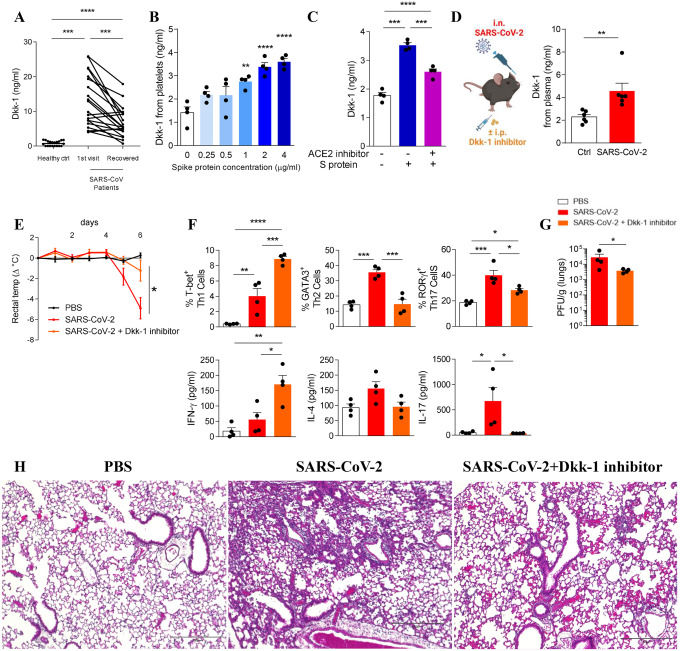
SARS-CoV-2 triggers Dickkopf-1 (Dkk-1) modulation of T helper cells and lung pathology in mice


Severe acute respiratory syndrome coronavirus 2 (SARS-CoV-2) is the etiologic agent of the coronavirus disease 19 (COVID-19) pandemic. In viral infections like SARS-CoV-2, a robust anti-viral type 1 immune response, including up-regulation of type 1 CD4+ T helper cells (Th1), is required for effective viral clearance while minimizing end-organ pathology and collateral tissue damage. However, in severe SARS-CoV-2 infection, T cell dysregulation can occur, leading to reduced Th1 and elevated Th2 and Th17 cells, exaggerated T cell-mediated cytokine release, and extensive systemic inflammation and tissue damage known clinically as severe COVID-19.1 Despite the global impact of severe COVID-19, the molecular mechanisms of T cell dysregulation during SARS-CoV-2 infection remain largely unknown. We previously discovered that platelet-derived Dickkopf-1 (Dkk-1), a Wnt signaling inhibitor, is a critical regulatory molecule in pulmonary T cell immune responses during pulmonary infections and induces Th2 and Th17 cell differentiation and activation.2 Additionally, the Dkk-1 signaling pathway is a potential biomarker for COVID-19-induced lung injury.3 We hypothesize that platelet-derived Dkk-1 is a key regulator in SARS-CoV-2-associated T cell dysregulation leading to severe COVID-19.
